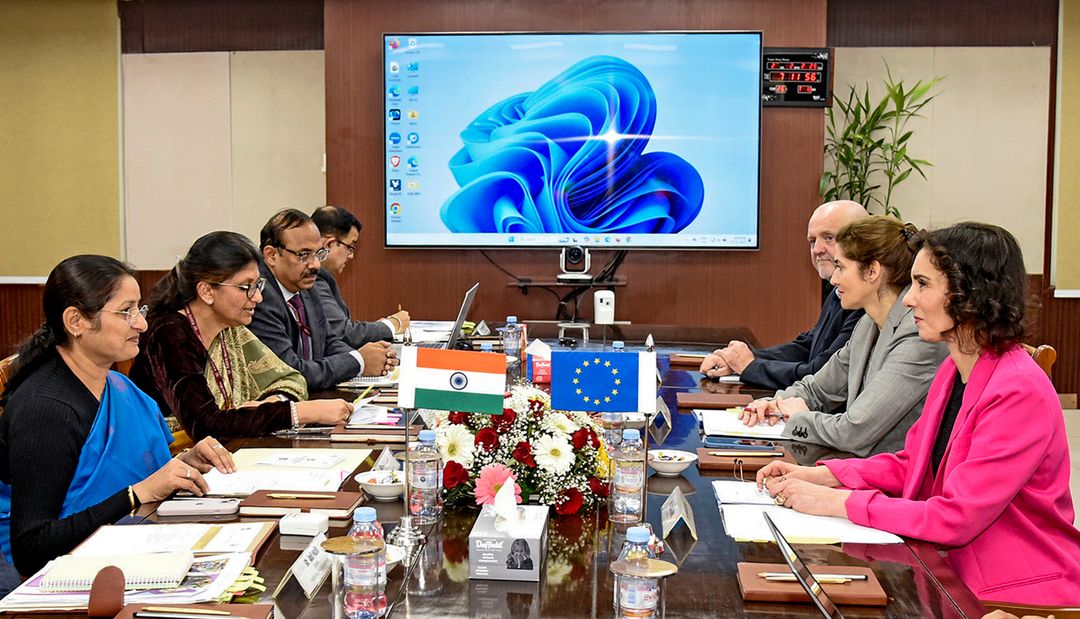New Delhi, May 10 — India and the United Kingdom have officially concluded negotiations on a landmark Free Trade Agreement (FTA) aimed at significantly boosting economic cooperation and trade flows between the two nations. The announcement, made earlier this week, marks the culmination of talks that began in January 2022.
The agreement seeks to double bilateral trade in goods and services from the current USD 60 billion to USD 120 billion by 2030.
Comprehensive Market Access for Indian Goods and Services
Under the FTA, India is set to benefit from the elimination of import duties on approximately 99 percent of tariff lines, which represents nearly the entire trade value between the two countries. This is expected to open up new opportunities for Indian exporters, particularly in high-potential sectors.Sectors Gaining Duty-Free Entry into the UK
Several Indian industries will now gain tariff-free access to the UK market, including:- Leather and footwear
- Textiles and apparel
- Gems and jewellery
- Base metals and machinery
- Furniture and wood products
- Sports goods and auto components
- Chemicals and minerals
Safeguarding India’s Sensitive Sectors
India has taken a cautious approach to protect sensitive sectors. Key exclusions include:- Agricultural goods such as dairy products, apples, cheese, oats, and vegetable oils
- Industrial goods like plastics, diamonds, silver, smartphones, optical fibres, and television components
Key Concessions to the UK
The agreement includes strategic duty concessions for British goods:- Scotch whisky and gin: Import duty will be reduced from 150% to 75% initially and further to 40% by the 10th year. However, with Scotch whisky holding just 2.5% of India's whisky market, the impact on domestic producers is expected to be minimal.
- Automobiles: Import tariffs on UK-manufactured vehicles, currently over 100%, will be reduced to 10% under a quota system. Iconic British car brands like Jaguar Land Rover, Rolls-Royce, Aston Martin, and Bentley are likely to become more affordable in India.
- Electric Vehicles (EVs): Concessional tariff quotas are restricted to a limited number of EVs, with no duty cuts beyond these quotas. Internal combustion engine vehicle tariffs will also be reduced gradually.
Boost for India’s Services Sector and Workforce Mobility
The FTA introduces favourable provisions for Indian professionals, including:- Simplified and assured entry rules for categories such as business visitors, contractual service suppliers, and intra-corporate transferees
- No numerical limits or economic needs tests for temporary worker entry
- Mobility commitments in 36 service sub-sectors and independent professionals in 16 sectors, including IT services, yoga, classical music, and culinary arts
Major Win: Double Contributions Convention Agreement
Indian workers and their employers posted temporarily in the UK will be exempted from paying social security contributions for up to three years. This move is expected to benefit over 60,000 IT professionals, resulting in an estimated saving of more than ₹4,000 crore.Government Procurement Access for UK Firms
The deal also grants UK companies access to India’s government procurement at the central level, limited to non-sensitive entities. UK firms can bid for contracts above ₹200 crore and will be treated as Class-II local suppliers, while access to state and local government contracts remains restricted.Timeline for Implementation
The final legal vetting of the agreement is expected to take approximately three months, after which it will require formal signing, approval by India’s Union Cabinet, and ratification by the UK Parliament. The FTA is likely to be implemented on a mutually agreed date, potentially within a year.This trade deal marks a new chapter in India-UK economic relations, laying a strong foundation for future growth across diverse sectors.

